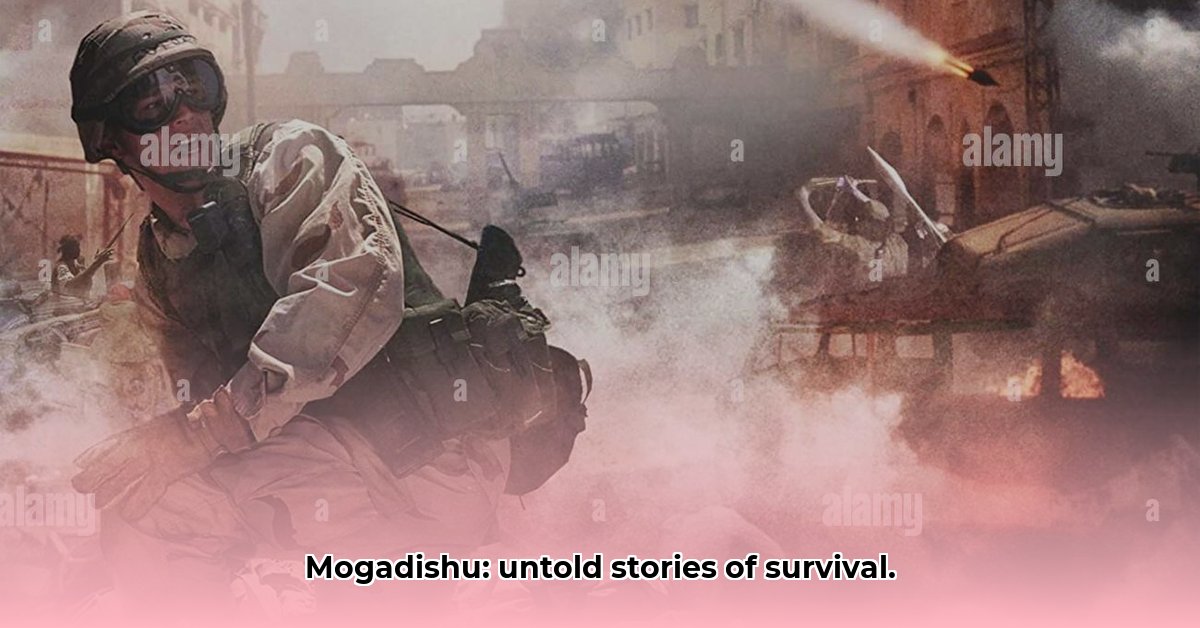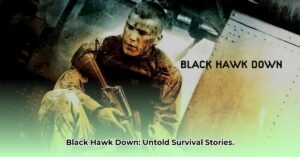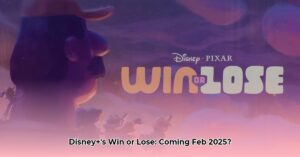Netflix unveils a gripping three-part docuseries, Surviving Black Hawk Down, premiering globally on February 10, 2025. This documentary promises a raw, intimate exploration of the 1993 Battle of Mogadishu, going beyond the Hollywood portrayal to reveal the human cost of conflict from multiple perspectives.
Beyond Black Hawk Down: Unheard Voices Emerge
This isn’t just another war documentary. While produced by Ridley Scott Associates (the same company behind the 2001 film Black Hawk Down), Surviving Black Hawk Down takes a drastically different approach. Forget the blockbuster action; this series centers on the human stories, giving voice to Somali militiamen, families caught in the crossfire, and others whose lives were irrevocably altered. Their experiences offer invaluable context, exploring motivations, perceptions, and the battle’s lasting impact on the community.
Inside the Battle: Soldiers and Civilians Speak
The documentary also features firsthand accounts from U.S. Army Rangers and Delta Force operators, providing insights into the psychological toll of combat. Their stories of heroism, trauma, and lingering questions paint a sobering picture of life on the front lines.
A Deeper Dive into Mogadishu: Archival Footage and Reenactments
Surviving Black Hawk Down uses a compelling blend of archival footage and reenactments to immerse viewers in the chaos of 1993 Mogadishu. But it’s the raw emotion in the interviews that truly resonates, bringing a human element to the historical account.
**(Video Embed: Official Trailer Here)**
Uncovering the Untold Story: A New Perspective on Mogadishu
Recall the intensity of Ridley Scott’s Black Hawk Down. This documentary, while connected through RSA Films, offers a different lens. Premiering February 10, 2025, on Netflix, Surviving Black Hawk Down explores the broader human impact of the battle, particularly on the Somali people. It asks: what was the true cost of this conflict for everyone involved? Directed by Jack MacInnes and produced by Jamal Osman and Emma Supple, the series weaves together firsthand accounts from both American soldiers and Somali citizens, archival footage, and reenactments to create a richer, more complete picture. The series suggests a re-examination of the events, potentially challenging the perspective presented in the 2001 film.
| Feature | Black Hawk Down (2001 Film) | Surviving Black Hawk Down (2025 Documentary) |
|---|---|---|
| Primary Focus | Military Operation | Human Impact & Multiple Perspectives |
| Perspective | Primarily American Soldiers | American and Somali |
| Format | Action/War Film | Docuseries |
| Use of Archival Footage | Limited | Extensive |
| Somali Voices | Largely Absent | Prominently Featured |
This inclusion of Somali voices is crucial, suggesting a move toward a more balanced portrayal. The series may explore the long-term consequences for the Somali community, delving into the political and social climate of the time.
Release and Availability: Mark Your Calendars
Surviving Black Hawk Down premieres globally on Netflix on February 10, 2025. Add it to your list—this is a story that demands to be seen.
Behind the Scenes: Who’s Bringing This Story to Life?
Surviving Black Hawk Down isn’t just a retelling; it’s a re-examination. It seeks to answer the often-overlooked questions about the individuals caught in the crossfire. Director Jack MacInnes leads the project, with producers Jamal Osman and Emma Supple ensuring authenticity and depth. RSA Films, Ridley Scott’s production company, backs the venture, offering a unique connection to the original film while maintaining a distinct purpose. The documentary combines interviews, archival footage, and likely reenactments to offer a deeper understanding.
| Feature | Description |
|---|---|
| Documentary Title | Surviving Black Hawk Down |
| Release Date | February 10, 2025 |
| Platform | Netflix |
| Subject | 1993 Battle of Mogadishu from American and Somali perspectives |
| Director | Jack MacInnes |
| Producers | Jamal Osman and Emma Supple |
| Production Co. | Ridley Scott Associates (RSA Films) |
| Focus | Providing a balanced narrative, including often-overlooked Somali perspectives, using interviews, archival footage, and probable reenactments to offer a deeper understanding |
It’s important to recognize that historical documentaries are interpretations of events. While striving for objectivity, Surviving Black Hawk Down contributes to an ongoing conversation, and conclusions may evolve as new information surfaces.
From Hollywood to Reality: Bridging the Gap
Surviving Black Hawk Down builds upon the foundation laid by the 2001 film, but with a crucial difference: it seeks to understand the human cost, a perspective often overshadowed by the Hollywood spectacle. The connection between the two is tangible; Ridley Scott’s RSA Films is involved. However, the documentary prioritizes a balanced account, incorporating the perspectives of the Somali people. This shift creates a multifaceted exploration of the battle’s impact. The documentary’s approach contrasts sharply with the film’s focus on combat. Surviving Black Hawk Down explores the emotional scars left on both soldiers and civilians, incorporating interviews, archival footage, and reenactments. It aims to reveal the human element of war, reminding us that it’s about lives, not just strategy. The documentary also explores the battle’s lasting legacy, examining its impact on U.S. foreign policy and the long-term psychological effects on veterans. While some experts believe the conflict shaped future interventions, ongoing research continues to explore its consequences.
Surviving Black Hawk Down, premiering February 10, 2025 on Netflix, promises a thought-provoking exploration of a pivotal moment in history. It encourages us to question assumptions, listen to different voices, and consider war’s enduring consequences. It emphasizes the complexities and human cost of conflict, presenting a more complete picture of the Battle of Mogadishu.







